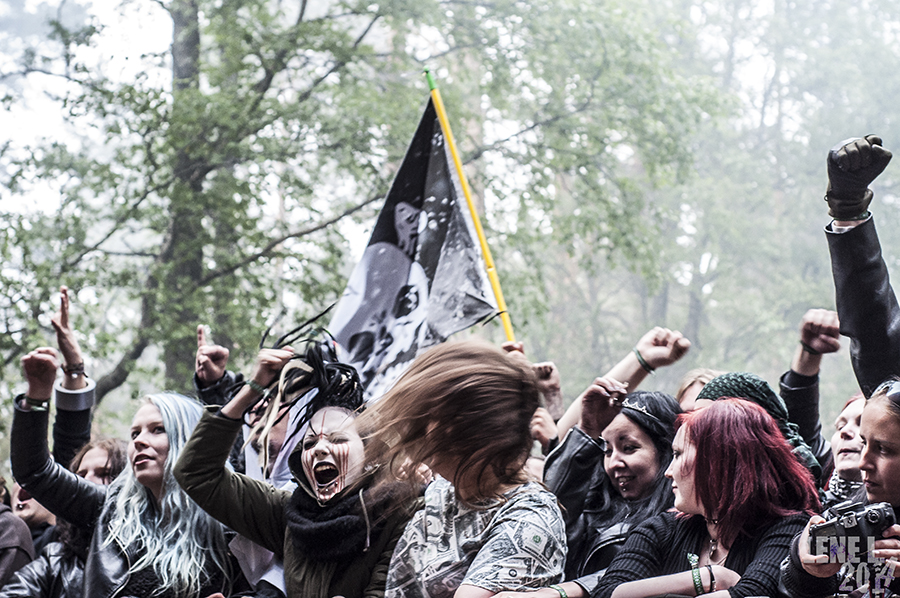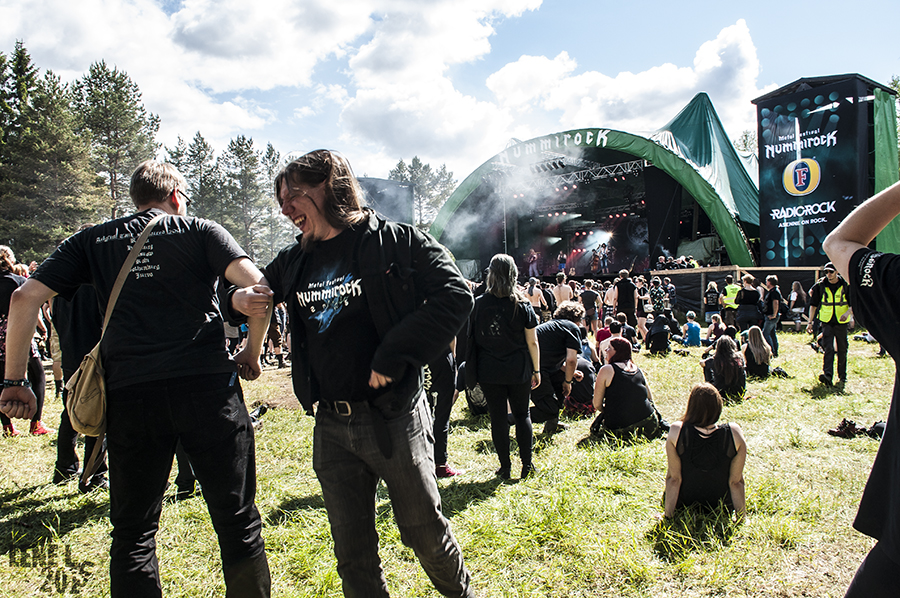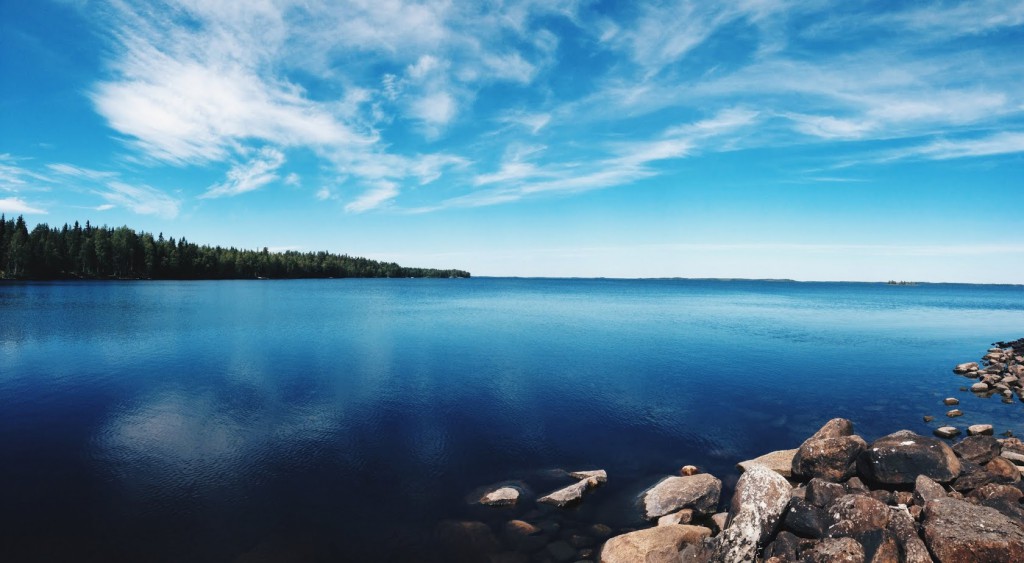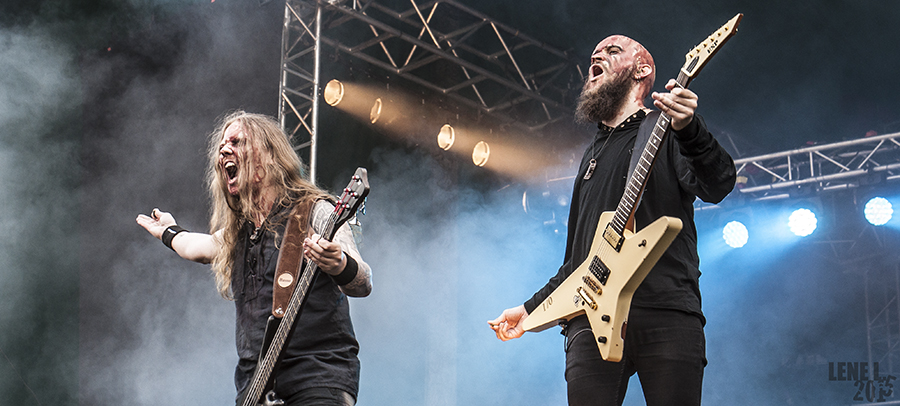Finnishness is weird. It’s probably one of those things I could try to explain for someone from outside Finland for years, and still not manage to grasp the purest essence of it. Yeah, yeah, there’s ice hockey, sauna, metal music, nature, salmiakki, moomins, yada yada, but essentially, I have to confess I have no idea how to explain the Finnish mindset properly. And really, I thought I had a clear concept of it inside my head, since I’ve worked and spent plenty of time with other than native Finns for a few years, and you’re bound to come across the fundamental differences by that, in one way or another.
I’m not big on stereotypes, such as being quiet (I’m not – most of time), being extremely honest (that I am, but not all Finns are), or loving sauna, salmiakki, coffee, ice hockey, moomins and metal music. Well, I do love all of those things – my passionate affection to the magical black liquid substance that keeps me awake knows no boundaries, I still find the moomin family as lovely as I did over 20 years ago (and our kitchen may or may not feature a few moomin-adorned items), sauna is a borderline sacred place, and one of the first things I did after getting accepted for exchange to Tilburg was to google the town’s hockey team, Trappers (which is a pleasantly well-succeeded one in the NL’s scale, too). My working life and free time have largely revolved around music and especially metal music, but while extremely Finnish, being one of the country brand’s newer flagships, it has brought me a lot of friends from abroad. You see, Finnish metal scene does not live up to the closed and closed-minded, reserved community stereotype. In case you’re not a terrible far-right redneck who can’t stand any foreigners ever (except if they’re Iron Maiden or Metallica), as a Finnish metalhead you likely have at least a few friends from abroad. The bands reach out early on their career, end up playing in nearly every corner of the world, but in their music maintain “the Finnish touch” that tells you where they’re from. It’s a thing in their sound and lyrics you can pick up, but not really describe: it just sounds Finnish. The same goes with a lot of Finnish photographers – when I studied photography, I learnt quickly to recognize “Finnish eyes”, a way Finnish photographers look at world, and could see from a bunch of photos which ones had been taken by a Finn. These days I wouldn’t recognize them as easily, but I was surprised to learn one of Instagram’s most famous nature photographers was a Finn; Konsta Punkka’s photos look so… worldly? Really, he could be from anywhere, just judging by his photos. It’s not a bad thing, per se, just surprising.

To some extent, I feel that things like that have been said as compliments for quite long in Finland – “it doesn’t look like it’s from here”, meaning that for instance a movie, or a music production, looks and sounds like it’s made in “the big world”. Realizing that made me think of some controversies in Finland and being Finnish: we’re extremely proud of what we do and have here, our quirks and specialties, but at the same time praise someone for not seeming like you’re from here. We’re proud of our language, but rather switch to English with all non-natives than teach them to speak or write it.
But so, stereotypes. For what foreigners know, Finns are quiet and shy, except we’re not. We’re actually pretty loud and obnoxious at times, but we just get irritated when someone else (be it a Finn or a foreigner) is, at the wrong time at least. We’re also usually helpful and glad to do the effort of showing you the right way to train station, tell you what it says in the cheese packaging in grocery store and whatnot, if you ask us – we probably won’t ask if you need help, because we don’t want to interrupt (or think it’s not our business). We’ve often been described super modest, and ok, at least I’m usually not good at taking compliments, but is there really a way taking one gracefully? Anyway, the options are usually either “oh it’s really nothing” sort of approach, or being an outright douche about your looks, achievements or whatever (though this probably applies to some amount of people everywhere). If you find a middle way, you’re basically a superhuman. Apparently we can’t do small talk and can come off as rude, or at least blunt or even stupid, but believe me, after years of being taught we can’t do polite small talk and teachers paying extra attention to that, we’re at least constantly thinking about how to small talk politely. We might also apologize for not knowing how to do that, while trying to talk about weather.

You might have heard that personal space is kind of vital for us, and yes, that one applies. When we first meet someone we like to keep them at arm’s length, and with casual acquaintances, like most classmates or work buddies, we maintain some distance. If we become friends, the amount of touching increases significantly – it’s all about getting to know and trust someone, being comfortable with them, and knowing you can let them inside your circle. So there’s absolutely nothing personal if a Finn backs off or doesn’t touch you after a handshake, they just don’t know you yet. Other stereotypical characteristic that still holds is the Finnish silence, and my, do we love that. I’m damn talkative, and it’s not all that uncommon among Finns than people seem to think, but the ability of being completely silent with someone in the same room, I cherish that with all my heart. It’s easy to be quiet all by yourself, but a friendly, unforced silence with someone is almost like meditation. And yes, you can (usually) tell it apart from silent treatment easily, just watch the mood. Also, you might hear that the easiest way to bond with a Finn or get them to open up is over a few drinks, but that doesn’t apply to all, of course. Some keep their distance even while drunk. What about heavy drinking in general? Yeah, we do that, I’m not even going to try to deny it. But again, it’s not for every Finn even, so being surprised if someone tells you they’re absolutists would be rude.
And nature, that’s a huge deal. People here have been genuinely worried about city kids not learning to move around in the wild, or at very least learning to tell one tree, plant, or animal in their close surroundings from another, and to me that’s sort of a weird (and a bit scary) concept to begin with. Even though I consider myself a city person and have lived in mid-sized and big towns and cities – on Finland’s scale, which is not all that much – for most of my life, knowing my way in the woods, recognizing edible berries, and knowing how some wild animals are supposed to behave are kind of no-brainers to me, things you are just supposed to learn as a kid. It could be that if Finns separate themselves too much from nature, they’d lose something essential for being Finnish. Not everyone likes to hike, hunt or fish, or go berry and mushroom picking (I don’t enjoy those too much, either), but I believe that all Finns enjoy the closeness of a forest and flowing water more or less. So perhaps it’s the constant presence and acceptance of something wild being out there that makes us how we are? Then again, there’s already (adult) people who seem to be very afraid of the wild, almost hysterically so.

What also seems to be important is the balancing between darkness and light. It’s rather dark for most of the year, so when the sun starts to show up more in the spring, not just the nature but also Finns sort of “wake up”. Suddenly we’re all busy seeing friends and spending time outside, whether it’s at summer cottage, beach, bar terrace or a festival. After the weather starts getting colder and the leaves start to change, things slow down, almost like hibernating. But the nice thing about winter is how snow lights up the darkness, northern lights colouring the sky, how stars look brighter, and how every place is adorned with Christmas lights and candles. The light during winter is different, but all the more beautiful within the darkness. And the darkness isn’t so bad, either – it can be like a blanket, hushing you in to spend time with yourself and family, a permission to slow down and focus on things you don’t do during summer. By Christmas time, the winter solstice falls near, too, so it also means that we’re turning from darkness towards light again, and that – if anything – is a thing to celebrate. As much as midsummer’s nightless night calls for celebration, yuletide and new year’s have equally lot to do with light. When you look at the whole picture, a lot of important things during a Finnish year revolve around light, waiting for it to return or its constant presence.
So yeah, I don’t know if I just scratched the surface here. There would be so much more to this and then some, and I could still feel the whole concept of Finnishness could be explained with a few well-built sentences, but I hope here’s at least a start.


Comments